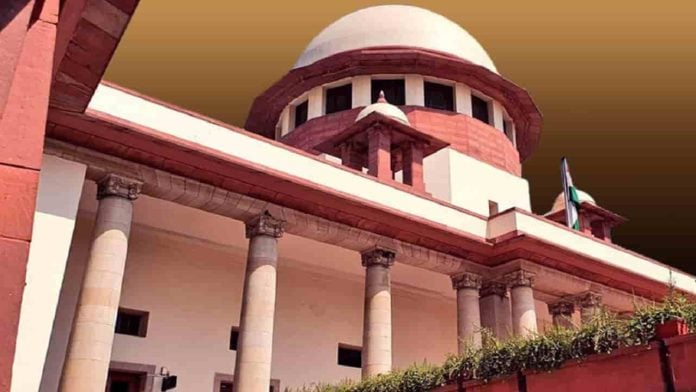The Supreme Court has today remarked that the practice of Talaq-e-Hasan among Muslims for divorce is not prima facie improper.
The bench of Justice Sanjay Kishan Kaul and Justice M.M. Sundresh in an order said that the case is currently pending before the Court and thus challenging the practice should not be used to further any agenda.
Justice Kaul observed, “Prima facie this (Talaq-e-Hasan) is not so improper. Women also have an option. Khula is there. Prima facie, I don’t agree with petitioners. Let us see. I don’t want this to become an agenda for any other reason.”
The practice of Talaq-e-Hasan permits a Muslim man to divorce his wife by saying the word “talaq” once a month, for three consecutive months.
The petition filed by a journalist Benazeer Heena, through advocate Ashwani Kumar Dubey, which seeks to declare this practice as unconstitutional, irrational, arbitrary and violative of Articles 14, 15, 21 and 25 of the Constitution.
The petitioner submitted in her plea has apprised the court that her husband had allegedly divorced her by sending a Talaq-e-Hasan notice through a lawyer on April 19 after her family refused to pay dowry, She further complained of being harassed by her inlaws.
The plea asks for guidelines on a gender and religion neutral procedure for divorce.
The plea terms the practice as “unilateral extra-judicial talaq”, and that says banning it is the need of the hour. It also says this practice is not necessarily part of the Islamic faith and misued. Thisis also discriminatory since only men can exercise the same, it was contended.
The bench remarked during the hearing today that women also have a similar option by way of ‘Khula’. Courts also grant divorce by mutual consent in case of irretrievable breakdown of marriage,
“This is not triple talaq. You (women) also have option of Khula. If two people cannot live together, we are also granting divorce by irretrievable breakdown of marriage. Are you open to divorce my mutual consent if mehar is taken care of,” the bench asked the petitioner.
The bench also inquired if the petitioner would be open to divorce on the terms of payment made over and above Mehar.
The Court has asked the counsel for the petitioner to take instructions in this regard and post the case for further consideration on August 29.
The woman claimed that she got married to a man in September 2020. She alleged that her husband’s family compelled her mother to organise a lavish marriage ceremony and demanded dowry. When her family refused to fulfil the unjustified demands of cash and expensive gifts, she was tortured physically and mentally due to which she filed a domestic violence complaint with the Delhi Commission for Women, the plea stated.
The petition said that her husband subsequently preferred the route of Talaq-e-Hasan and gave her the first notice for the same with a view to compelling her to withdraw all legal complaints against him and his family members.
The plea called the practice an abominable one when seen in the light of the progressive times of the 21st century.
The plea further pointed out that since the Supreme Court has already declared triple talaq as illegal in the case of Shayara Bano, forms of “unilateral extra-judicial talaq” should not exist.
Therefore, the petitioner said that Talaq-E-Hasan is not only arbitrary, illegal, baseless and an abuse of law, but also goes against Articles 14, 15, 21, 25 of the Indian Constitution and United Nations Conventions.


